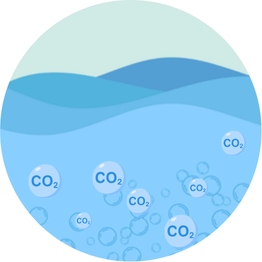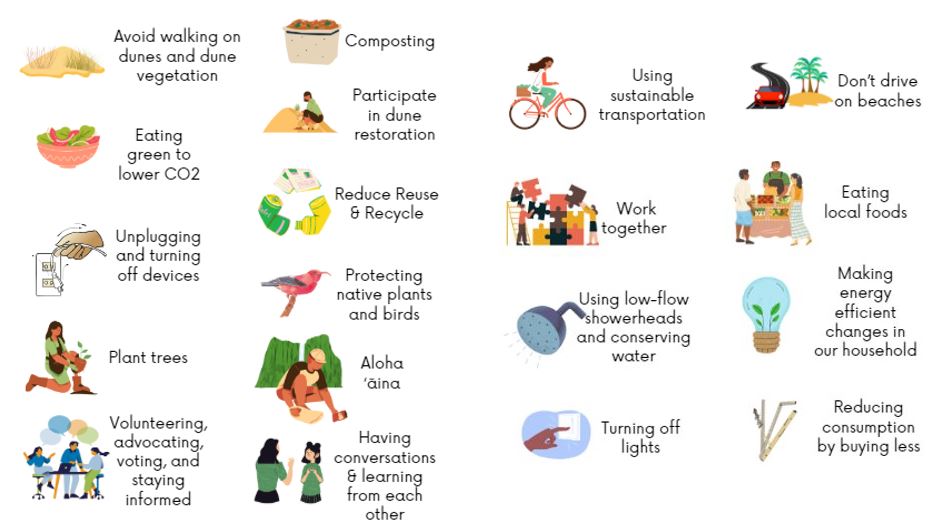Ocean Acidification
 Ocean Acidification
Ocean Acidification
Nearly 25% of carbon dioxide we produce during the burning of fossil fuels for energy is absorbed by the ocean.[1]
As the ocean absorbs more carbon dioxide, a series of chemical reactions occur, making it more acidic.
These changes to the ocean water make it difficult for animals with shells and coral to build their skeletons and survive.
When the ocean becomes too acidic, animals with shells and coral can’t survive. The coral will die and start to crumble, leaving reef fish without shelter and, ultimately, fewer fish.
Ocean acidification can cause our reefs to disintegrate, breaking up our first line of defense from large waves and storm events. This can cause shoreline erosion and increase flooding in our communities.
Our reefs also have deep cultural value and provide food and recreation for our communities. Coral reefs offer numerous and invaluable resources; if we take care of our coral reefs, they will take care of us.
Resilient reefs help create resilient communities!
We can all do things to change this outcome, like:
[1]crabs-in-a-changing-ocean-infographic.pdf, Home – NOAA Ocean Acidification Program

